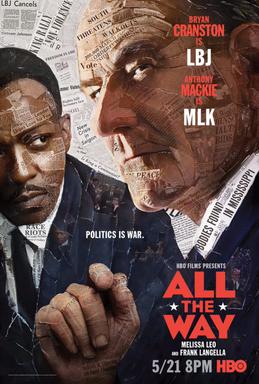The problem is one of balance. You don't want a purely goody-two-shoes subject, because we want to see our heroes have some kind of flaw that they must struggle to overcome. That makes them somehow easier to relate to. So you get any number of musical geniuses (examples include Johnny Cash, James Brown, and Ray Charles) who put the people who love them through hell before having some sort of epiphany. You also want there to be a struggle of some kind - maybe the subject has to overcome racism (Jackie Robinson, MLK), homophobia (Harvey Milk), mental illness (Howard Hughes) or systemic injustice (N.W.A.).
In the case of Sully, you get Tom Hanks as Capt. Chesley Sullenberger who managed to successfully bring a stricken Airbus down on the frigid Hudson River following multiple bird strikes which took out both of the jet's engines. There was no - repeat, NO - loss of life. Now, my father spent his career as a pilot, first with the Navy, then with Piedmont Airlines, and I remember clearly his admiration for Sully. (The airline Sully flew for was USAirways, which gobbled up Piedmont.) This was not just a difficult thing to do, it was impossible. And yet Sully managed it. The problem with Sully isn't that the story is far-fetched, it's that it isn't "fetched" enough. The moviemakers tried to gin up the drama by making the National Transportation Safety Board ("NTSB") members investigating the crash into the bad guys and it is entirely unnecessary. Events are also compressed to the point of being crushed - NTSB investigations take months and are very painstaking. In Sully, you can be excused for thinking that everything was done in about three weeks. Still, an interesting film, even if it has been "Hollywooded." Clint Eastwood directs, and does an admirable job, if you discount the final song over the credits, which just seems jarring.
Then you have Nina, a biopic starring Zoe Saldana as Nina Simone, a reluctant jazz star who only took to singing to pay for her classical piano studies. From the little western NC town of Tryon, Nina Simone was, for a time in the 60s, more famous for her civil rights stances than her music, and she was plenty famous for her music! Simone's voice was beyond distinctive and I was very much looking forward to this film.
It's a travesty. Awful. Wrong. Misses every single, solitary point. And I will admit that I did something I very rarely do, which is not finish it. The main relationship in the film never existed and Zoe Saldana plays the role in blackface. In 2016. If you must know more details of the problems in this fish wrapper of a movie, click here.
So instead, I watched What Happened, Miss Simone? which is a gorgeous documentary about Nina Simone. The title comes from an essay written by Maya Angelou and that only brushes the tip of the iceberg of what is extraordinary about this performer you've probably never heard of. Do yourself a favor and see this as soon as you can. Nina Simone was complicated, brilliant, self-destructive, used and a user. You won't necessarily like her all the time, but her music came from a place of truth, anger, joy, and tremendous beauty.
Someone else who you won't like all the time is Lyndon Baines Johnson, the "accidental president" who stepped into the Oval Office following the assassination of JFK. Kennedy was the golden boy, all youth and good looks and carefully-constructed image. LBJ, on the other hand, was the old Texas warhorse who had been carefully accumulating markers on Capitol Hill. Suddenly, this rough-edged politician was thrust into the glare of the spotlight and needed to make good on Kennedy's high-flying promises, which included the Civil Rights Act. Maybe only LBJ, with his decades of maneuvering, glad-handing, and not-so-subtle pressure, could have delivered on that, but he went far beyond it. The Voting Rights Act, the Clean Air Act, the Clean Water Act, Head Start - these are but a few of the "Great Society" programs that LBJ championed and, in so doing, transformed America. The escalation of Vietnam marred his legacy, however. Those events occur after the time period covered in All the Way, the film based on the Tony Award-winning play starring Bryan Cranston, tells the story of the first year of the LBJ presidency, going from that dread day in Dallas to LBJ's election a year later. It's powerful moviemaking and well worth seeing. LBJ could be a cast-iron sonofabitch, but politics at that level isn't for the meek. A magnificent supporting cast makes this a must-see, especially during this election cycle.



